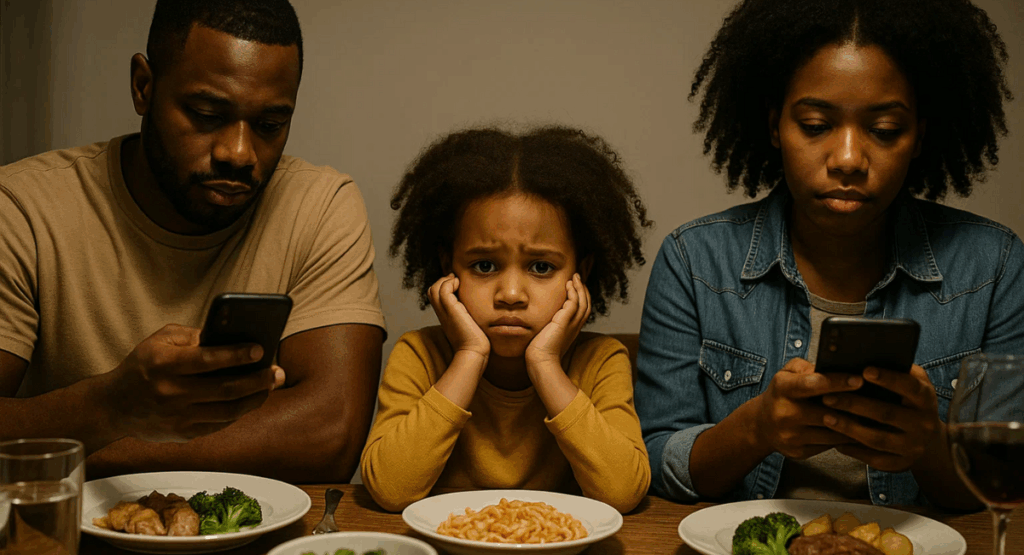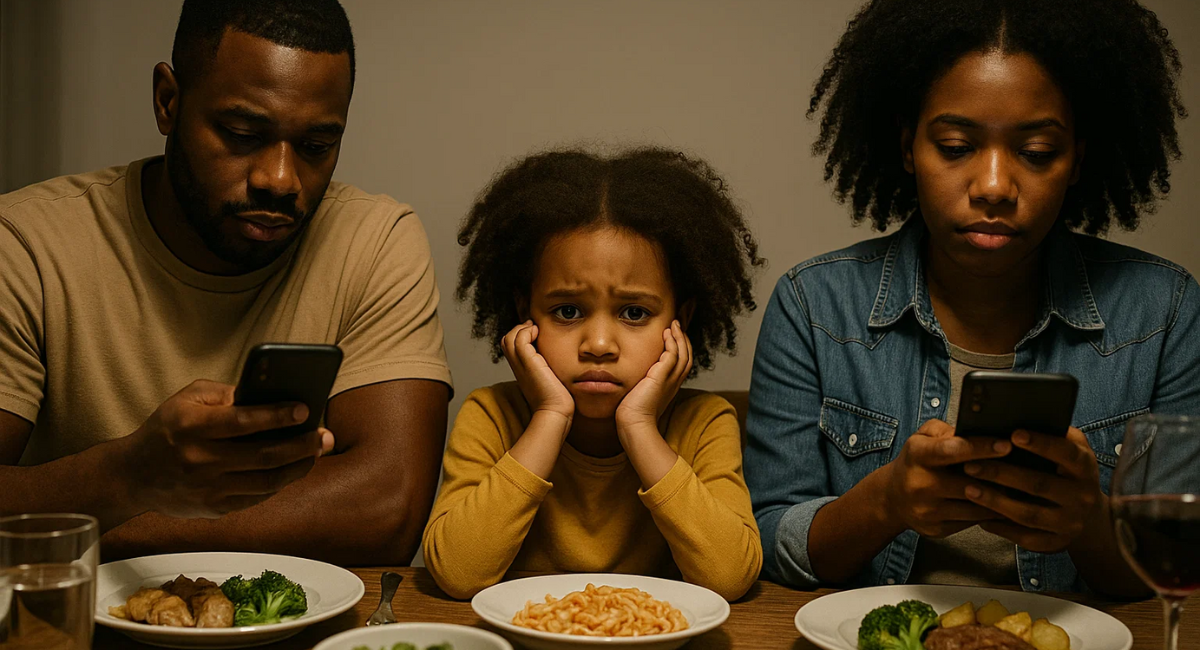Married, But Not Loved: The Quiet End of African Dating

In many parts of Africa, love stories are built to impress. Weddings are celebrated with loud music, fine clothes, and proud families. The photos are beautiful, the guests are happy, and prayers fill the air. But after the cake is eaten and the guests return home, a different reality begins for some couples. The joy that started with dating slowly fades into silence. Love turns into a memory, not something you still feel in your chest. You are married, but not loved.
This is not always because people married the wrong person. Sometimes they married with the right intentions, with hope in their eyes. But between tradition, pressure, and survival, the relationship that once felt alive turns into a quiet, daily performance. And while no one talks about it openly, this quiet ending of love is real, and far more common than we admit.
Download Pendova on Google Playstore:

iOS Users can access Pendova app on web.pendova.com
1. Post-Wedding Disconnect
Before marriage, love feels personal. You dress up, go out, talk for hours, and try to understand each other deeply. But once the wedding is done, many couples stop dating each other. The romance becomes routine. Life takes over. There’s money to manage, mouths to feed, and long days that leave you too tired to talk. The fun conversations are replaced by practical ones.
The passion cools. With time, your partner starts to feel like part of the routine, not the place your heart comes home to. What was once sweet and alive now feels dry and transactional. Dating is what brought you together, but once you’re married, it’s treated like a luxury you no longer deserve. And yet, love needs maintenance. Without it, it quietly leaves.
2. Cultural Pressure
In many African families, marriage is not just about two people. It’s a joining of families, tribes, and reputations. This can bring support, but it can also suffocate. Decisions are no longer made by two people, but by everyone around them. Couples are expected to behave, not necessarily to be happy.
A man may be told, “You’re the head; don’t let her challenge you.” A woman may be reminded, “Respect him, even when he’s wrong.” These ideas, passed down for generations, often block true connection. There’s little room for emotional honesty. The marriage becomes about duty, not desire. And slowly, the couple drifts apart, even as they remain in the same house.
3. Faith as a Silent Restraint
Faith is a deep part of African life. It offers hope, structure, and guidance. But in marriage, it is often used to promote survival over healing. Churches preach forgiveness, but not always healing. Mosques encourage patience, but not always intimacy. Many women are taught to endure no matter how cold the marriage becomes. They are told they’ll be rewarded in heaven for the pain they accept on earth.
Men also suffer. They’re told to provide, not to be present. So they stay emotionally distant and spiritually dry, even while fulfilling every “godly” duty. The result is a marriage that looks holy but feels empty. Religion is meant to be life-giving, but in these cases, it becomes a cover for quiet suffering.
4. Emotional Distance at Home
Some marriages don’t explode. They just disappear quietly. They don’t argue anymore. They don’t fight. There’s just silence now. Meals are eaten in silence. Evenings are spent on separate phones or in separate rooms. Birthdays are remembered out of obligation, not love. The couple moves through life like business partners or flatmates.
What hurts most is that many have come to believe this is just how marriage is meant to be. They tell themselves, “At least we don’t fight.” But the absence of conflict doesn’t mean presence of love. Silence becomes a mask for emotional distance. It’s a kind of peace, but it’s the peace of two people who gave up on being heard.
5. Intimacy Without Affection
In the beginning, affection flows freely. There’s touching, flirting, and joy. But in many marriages, especially after children come, intimacy becomes something functional. It is done to meet an expectation, not to express love. Some women feel used, not desired. Some men feel ignored, not cherished.
Emotional connection fades, and physical touch becomes a chore or vanishes entirely. Many couples can’t remember the last time they held hands, kissed meaningfully, or talked without a reason. And without that closeness, even simple acts like sitting together feel heavy. Intimacy is not just sex. It’s laughter, shared secrets, and small gestures. When those fade, marriage becomes cold, no matter how long it lasts.
6. Emotional Affairs
When people feel unseen in their marriage, they start looking elsewhere, not always physically, but emotionally. It could be a colleague who listens without judgment. A stranger online who compliments them. A childhood friend who still remembers who they used to be.
These emotional escapes offer what the marriage no longer gives: attention, validation, joy. They feel light, excited, and safe. And even if nothing physical happens, the heart starts leaving. Some people feel guilty. Others convince themselves it’s harmless. But it shows a truth: people don’t just want to be married, they want to be loved.
7. No Space for Vulnerability
From a young age, African men are told to be strong, not soft. Women are praised for endurance, not honesty. So when two people enter marriage, they both carry masks. They suppress their tears, fears, and confusion. When they try to open up and get dismissed or misunderstood, they shut down for good.
Over time, vulnerability feels unsafe. Talking about emotions becomes awkward. Problems are brushed aside. And without emotional safety, love cannot grow. Marriage requires softness, but in many African homes, that softness is treated as weakness.
8. Social Stigma Around Divorce
Even when love has ended, divorce is seen as a failure. Especially for women. They are told, “You must have done something wrong.” Or worse, “No man is perfect, just stay.” So they stay in loveless homes, decorating pain with smiles.
Men also stay. Not because they’re happy, but because leaving would mean facing shame, financial loss, or social judgment. Some stay for appearances. Others stay because they don’t know how to start again. In many African societies, being married, even unhappily, is still more respected than being divorced and healing. That thinking needs to change.
9. Children as Emotional Anchors
Children deserve love, but they are not enough to carry a broken marriage. Many couples stay together “for the kids,” thinking they are protecting them. But children are smart. They feel the tension. They hear the silence. They watch their parents avoid each other.
Over time, they begin to form their ideas about love, ideas shaped not by affection, but by emotional distance. They grow up thinking marriage is where happiness goes to die. What parents model becomes the blueprint their children follow. So, staying unhappily together can sometimes cause more harm than choosing peace apart.
10. Reclaiming the Possibility of Love
Love doesn’t end just because you’re married. It fades when people stop choosing each other, day by day. But even then, love can find its way back. Some couples find their way back through small, honest steps. Others accept the truth that walking away might bring more peace than staying. Both choices take strength. Wanting more than just duty is not weakness. Love should still feel soft. Still feel alive. Even after the vows.
Conclusion
We celebrate weddings, but forget to ask what comes after. Too many people stay married, but unloved. Quiet. Lonely. Just going through the motions. Marriage shouldn’t be where love ends. It should be where love grows deeper. We need to stop clapping for rings and start asking Are they happy? Are they still seen? Are they still held?No one should have to say, “I’m married, but not loved,” and feel like they must stay that way. Love deserves better. So do you.
Follow our Social Medias:







